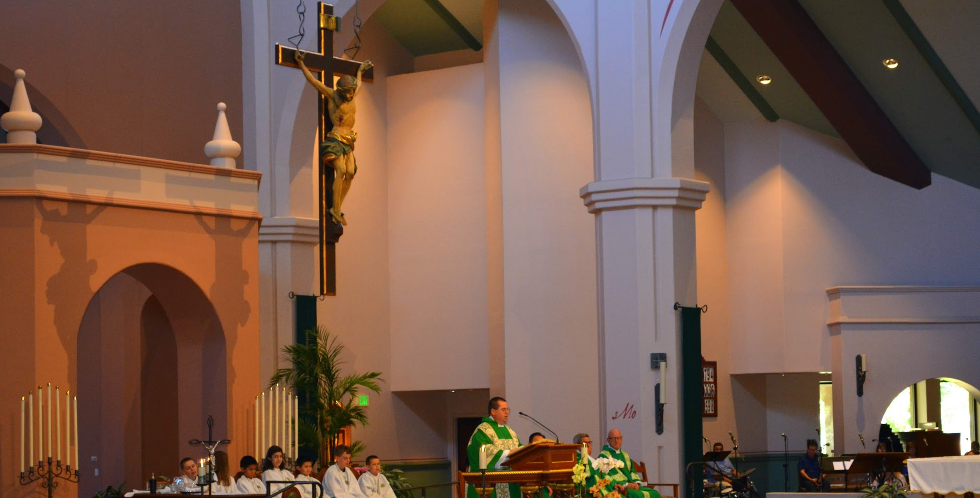Our parish hands out ‘The Little Black Book’ reflections for Lent every year. For those not familiar with them, they are a booklet that has 2 pages dedicated to each day of Lent with a reflection of that day. They say it should take about 6 minutes each day.
I have to admit, I wasn’t too pleased with today’s reflection. It starts with “Before the latest revision of the Roman Missal, one of the prefaces for Lenten Masses thanked God because ‘each year you give us this joyful season…'” The reflection then goes on to talk about why the word joyful is used.
This is my objection: The text of the Missal was changed for a reason. The Church has itself decided that joyful is not the right word. Why are they insisting on sticking to a word that the Church has decided was not right?
To make matters worse, the reflection in the Little Black Book isn’t arguing that Lent is joyful, it is arguing that Lent is a positive thing. To use it’s words, “If I make this a good Lent, I’ll find myself a happier person.” I also speaks of Lent being “invigorated, energized, enlivened…”
And that I would agree with. Lent is a positive thing. I’d bias towards words like holy, edifying, reconciling, purifying and strengthening, all of which are positive things. And so while my choice of words may have been slightly different, I’d overall agree.
Which makes it all the more baffling to me why they’d stick with an unnecessary reference to a Missal translation we haven’t been using for 8 years. Why!?! And I was tempted to assume their motives were less that honorable. That they were “obsessed” with the old translation and couldn’t let it go. But then I read the ‘about’ page in the back of the book:
“In 1999, Bishop Ken Untener … decided to create a Little Black Book. … Bishop Untener died 15 years ago, on March 27, 2004, but his writings, talks and homilies are the basis for the reflections on the right-hand side of ‘Little Books’.”
Which brings a great deal of clarity. I suspect the reflection for the day today has been the same since 1999 or at least since 2004. And the care-takers of this ministry are trying very hard to be as true to Bishop Untener’s writings as possible. And so they’re stuck with a difficult problem. They’ve got the words he used and decided are best for this day of Lent, but they reference words that changed in the Missal 6 years *after* his death. How are they to reconcile this? Do they find some other writing of his to substitute even though it is not the thought he had for this day? Do they change the overall wording and risk perhaps changing the intended message he wanted? Or do they add a quick preface to the text to indicate that these were the words before the Missal change so as to leave his text as intact as possible?
Obviously they chose the last route. And while I might argue it would have been wiser to go with the middle option, it’s hard to argue with the good intentions of the care-takers of these booklets. There’s no reason to presume they’re “obsessed” with the old translation. It’s likely quite the opposite.
The point of all of this is that we need to be really careful when we get frustrated with others, particularly when we take it to the level of assuming bad motives. Most of the time there is so many things that contribute to a persons decisions and actions. Most of the time we’re unaware of much of it. And while we may have still argued for a different decision than the one we made, I’ve found that most of the time, when I learn the back-story of a decision/action I disagree with, I find that my ability to ascribe negative motives to them usually goes away.
Our society is in a really bad place in this regard currently. Far too often we find the flimsiest excuses we can find to ascribe bad motives to others. We’re waiting for the opportunity to condemn.
But this is not what Christ calls us to. We are called to assume the best of others. We are called to remember that everyone is made in the image and likeness of God.
Perhaps this is yet another thing we should all be working on this Lent.
